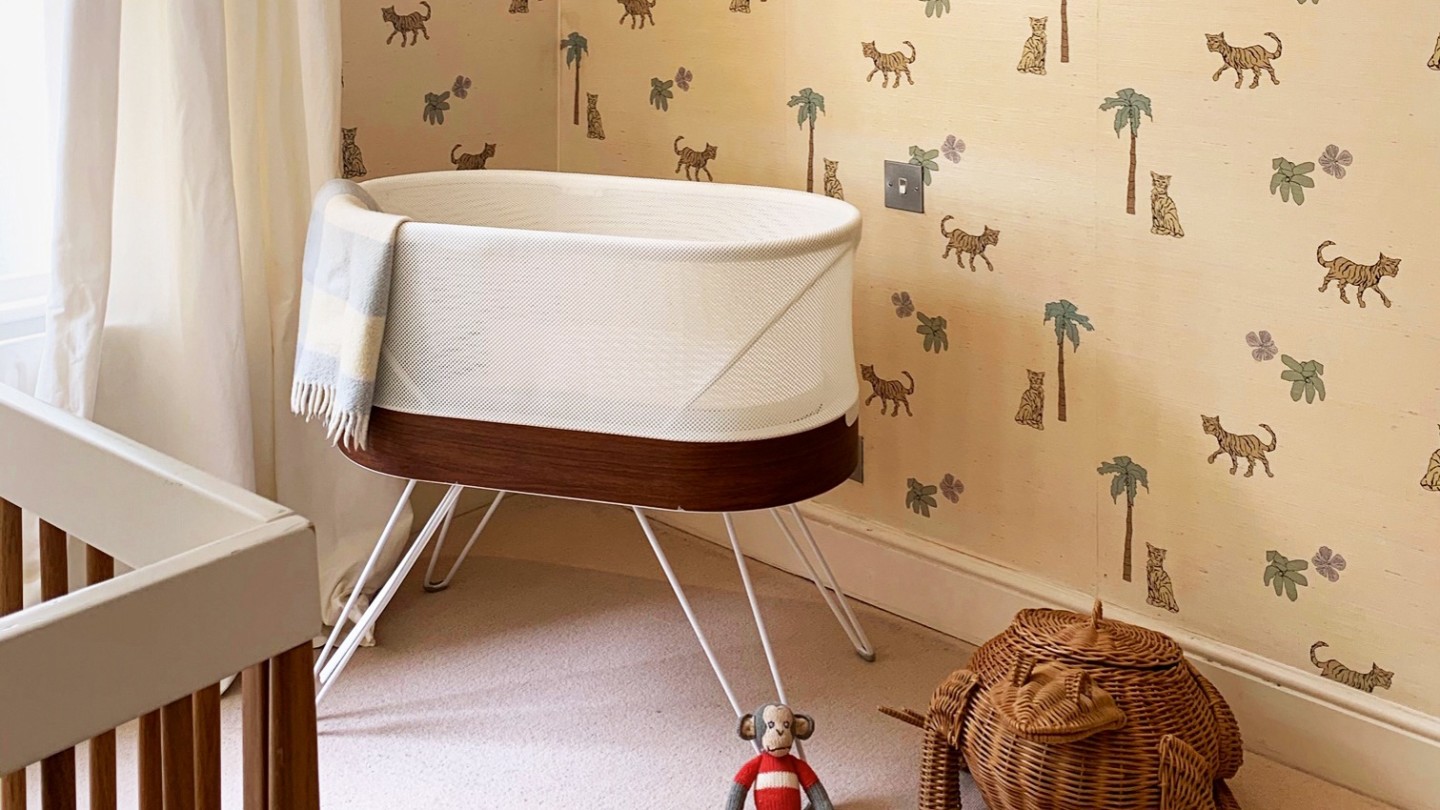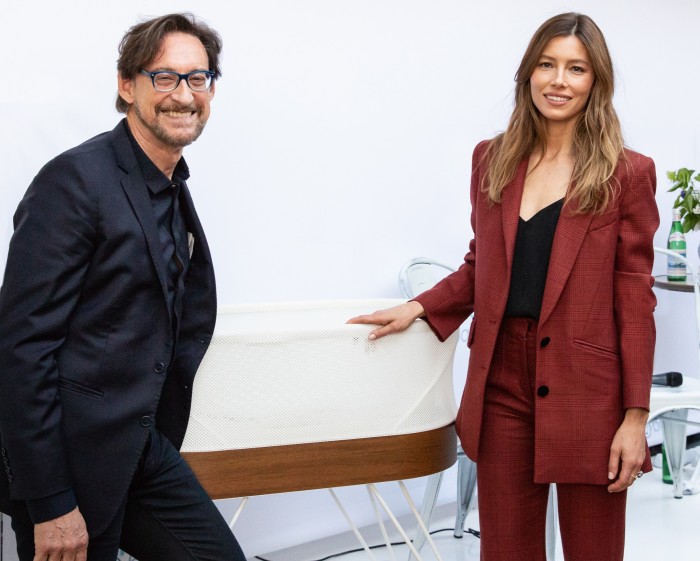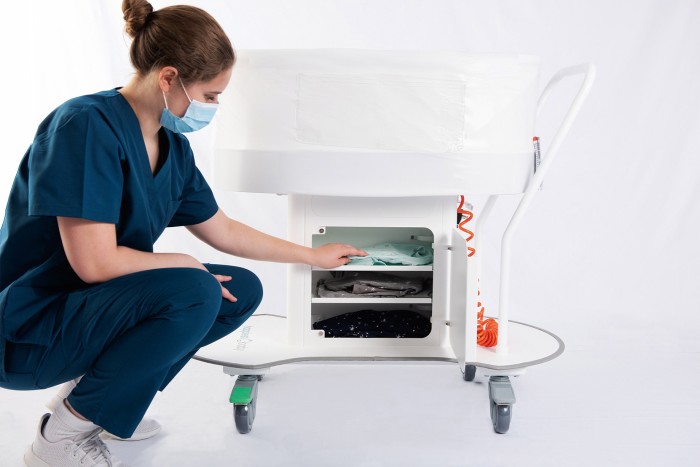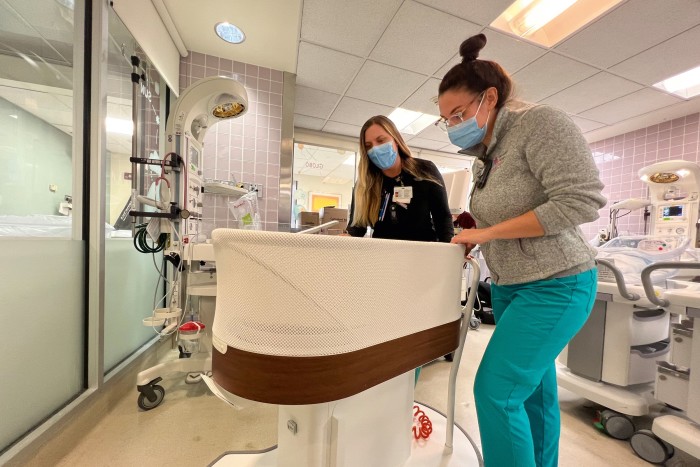The robo-cot with a heart

Roula Khalaf, Editor of the FT, selects her favourite stories in this weekly newsletter.
When is a cot not a cot? When it’s a “robotic caregiver” with a social purpose. You may have heard of the Snoo Smart Sleeper: the £1,195 “intelligent” bassinet designed to increase the length of time a baby sleeps and reduce the risk of cot death. What is less known is the company’s ambition to expand the reach of its impact by donating beds to homeless shelters, opiate withdrawal clinics and hospitals, as well as pioneering a government-backed rental model.

The story began with US paediatrician Dr Harvey Karp, whose Happiest Baby books have sold more than two million copies, and who came out of retirement on a mission to reduce cot-death statistics (3,600 babies a year in the US in 2018). Designer Yves Béhar and MIT-based human-machine communication specialist Professor Deb Roy spearheaded design for a bassinet that used artificial intelligence to respond to a baby’s cry with rocking and white noise. The Snoo was launched in 2016. “In terms of safety it’s a game-changer,” says Dr Arabella Simpkin Begin, who trained as a paediatrician and is now director of studies of clinical medicine at Lincoln College, Oxford. The Snoo has been designated an FDA Breakthrough Device for reducing sudden infant death syndrome. But studies have proved that it also achieves the ineffable: settling a bawling newborn and adding one to two hours to their sleep.
Since inception, Happiest Baby has worked with non-profit organisations such as Baby2Baby to donate funds and cots to homeless shelters, domestic-abuse refuges and disaster-relief sites. During the pandemic, the company donated $1mn worth of Snoos to more than 150 hospitals around the world, as well as medical centres looking after babies withdrawing from opioids. It’s a pattern of giving that has continued.

A study of 44 hospitals found that each Snoo reduced nurse labour by 2.2 hours per shift on average. “Our nurses really embraced the Snoos – they acted like an extra pair of hands,” says Tiffany N Kimbrough, medical director of the mother and infant unit at the Children’s Hospital of Richmond, Virginia.
The Happiest Baby is a family company run by Karp, 71, and his wife and business partner Nina Montee-Karp. Annual revenues approach $100mn, and their C round of funding, in 2021, raised $45mn. Many of its high-profile fans have come on board as investors, including Jessica Biel and Scarlett Johansson. “Harvey’s mission has always been a pay-it-forward model and that’s what attracted me most to Happiest Baby,” says Johansson. “His goal of helping as many mothers as possible access safe sleeping solutions is greatly needed in vulnerable communities and households.”

As part of the drive to broaden its reach, Happiest Baby also rents bassinets out. Snapchat, the NFL and JP Morgan were some of the first corporations to offer Snoos to their workforce. Karp now wants to reach more vulnerable mothers and babies by persuading governments to rent the product. Virginia is putting forward a pilot research project using 300 beds. The scheme hopes to show that providing Snoos will improve public health, “not just in terms of infants, but for example regarding the tens of billions of dollars paid out to mitigate the costs of parental burnout. We want to demonstrate to healthcare providers that using Snoo will save them money,” says Karp. Surely this is one idea they don’t need to sleep on.
Comments